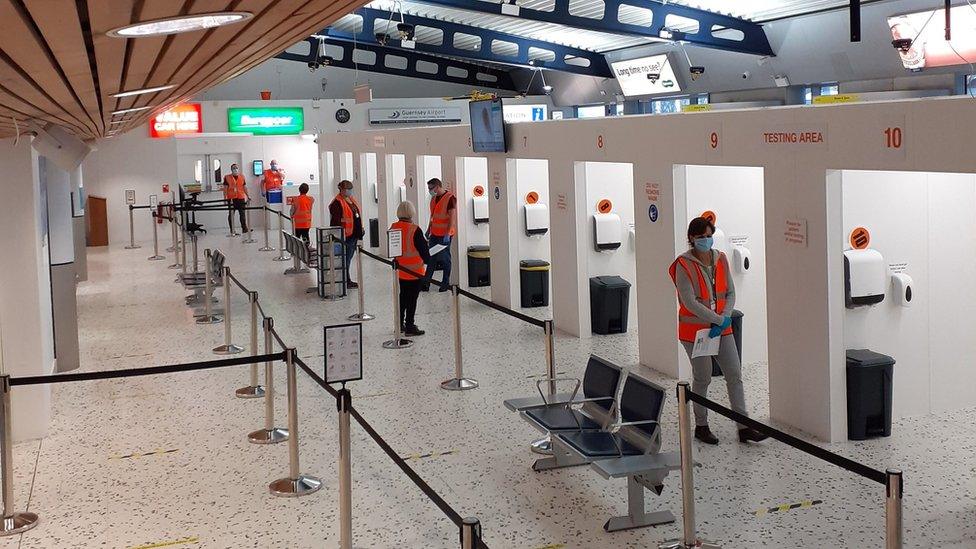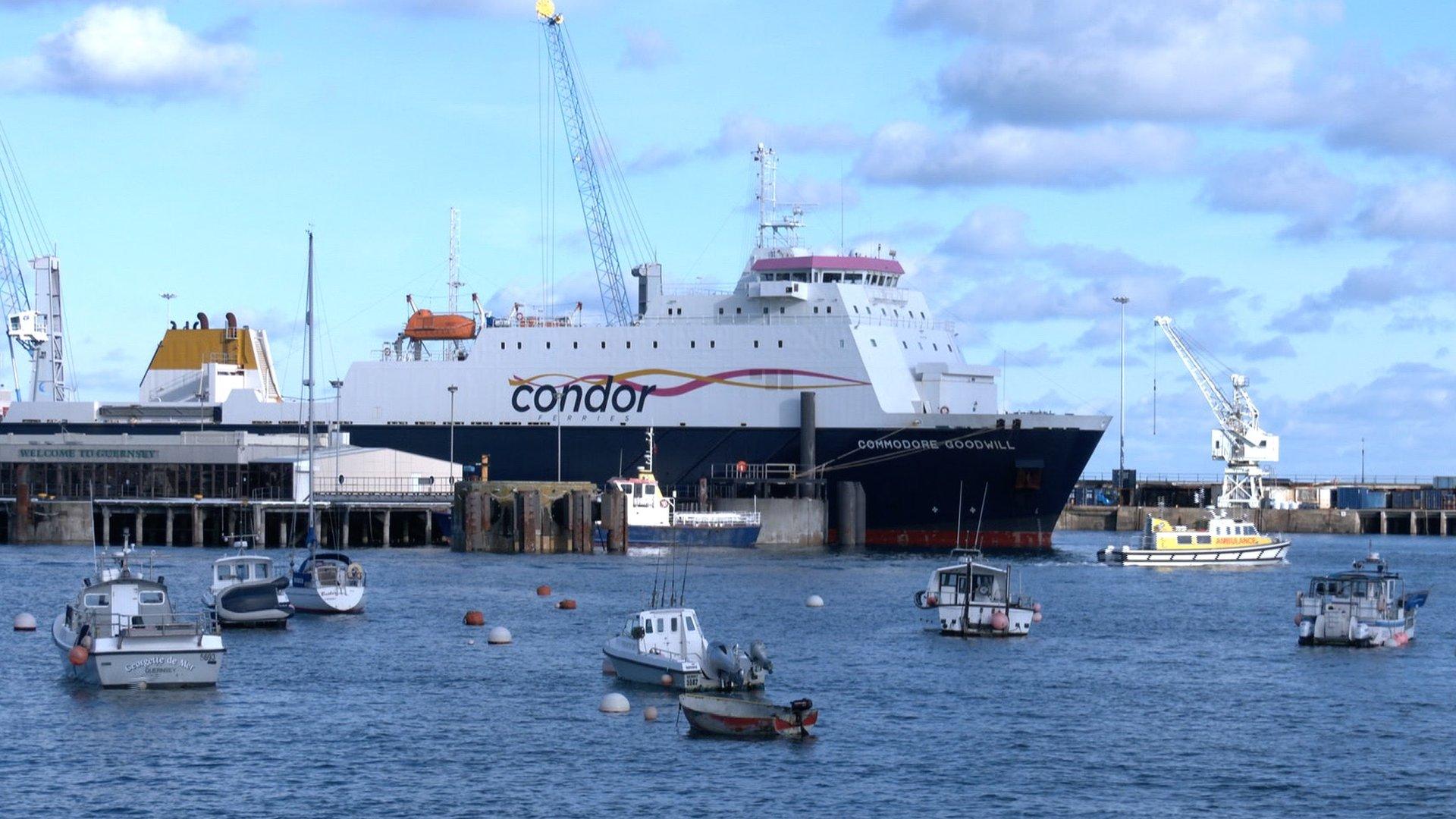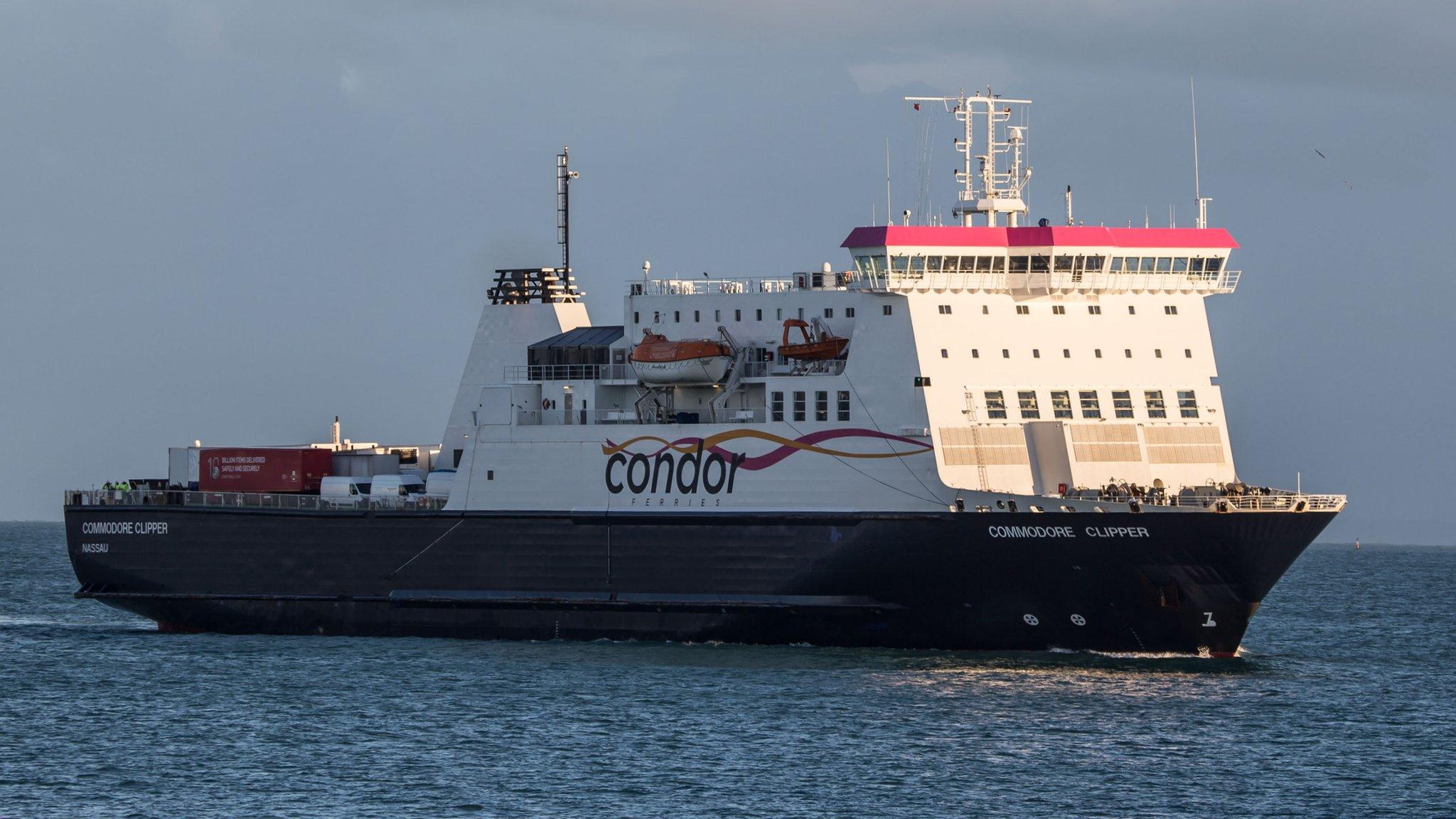Covid-19: Guernsey introduces 'essential travel permits' for travel
- Published

Arrivals must take a test at the border and on day 13 of self-isolation to leave quarantine after two weeks
A permit to travel to Guernsey will be legally required from Thursday as part of a ban on 'non-essential travel'.
From Wednesday passengers need to take a test at the border to be eligible to leave self-isolation after 14 days.
People wishing to travel to the Bailiwick of Guernsey must apply for a permit in advance, external and, if approved, will receive one within 48-72 hours.
Failure to secure a permit could lead to prosecution and a fine of up to £10,000, the States of Guernsey said.
Both decisions to tighten travel rules were taken by the Civil Contingencies Authority (CCA) in response to rising Covid-19 rates in the UK.

What is 'essential travel'?
Critical workers
For compassionate purposes, including supporting a dependent relative
Medical treatment
Accompanying a child or vulnerable person
Essential business activity which cannot be done remotely
Meeting legal obligations like attending court proceedings
Attending or returning to education
Returning residents who travelled off the island before 12 January
Moving to the bailiwick where a house has already been purchase and process of moving has begun
Beginning a job already secured with a local employer or where the work is essential
It does not include visiting friends or relatives, working remotely or staying in a second home for non-bailiwick residents.

Previously only a negative test on day 13 was required, but now anyone who declines a test on arrival or day 13 of self-isolation must quarantine for three weeks.
However, children under 12 only need to receive a negative coronavirus test on day 13.
The travel permit system includes Bailiwick of Guernsey residents who choose to leave and intend to return, the States of Guernsey confirmed.
Critical workers approved by the States to travel do not need to obtain this, but they must go through their specific application process and abide by existing critical worker self-isolation and testing requirements.
'Simple as possible'
CCA Chairman Peter Ferbrache described the stricter testing rules as a "belt and braces" approach.
He said: "Those who must travel for critical or essential reasons need to work with us to protect the bailiwick from Covid-19."
States chief executive Paul Whitfield said the aim of the permit system was to prevent "prevent people travelling unnecessarily", reducing arrivals into the islands and helping to protect the community.
He explained the application process would be kept "as simple as possible" and encouraged people who were not sure if their travel was essential to make an application.
Mr Whitfield said: "But it won't be a soft approach, we will be strict in ensuring any journey that clearly isn't essential is declined."

Follow BBC Guernsey on Twitter, external and Facebook, external. Send your story ideas to channel.islands@bbc.co.uk, external.
Related topics
- Published8 January 2021

- Published7 January 2021

- Published4 January 2021
